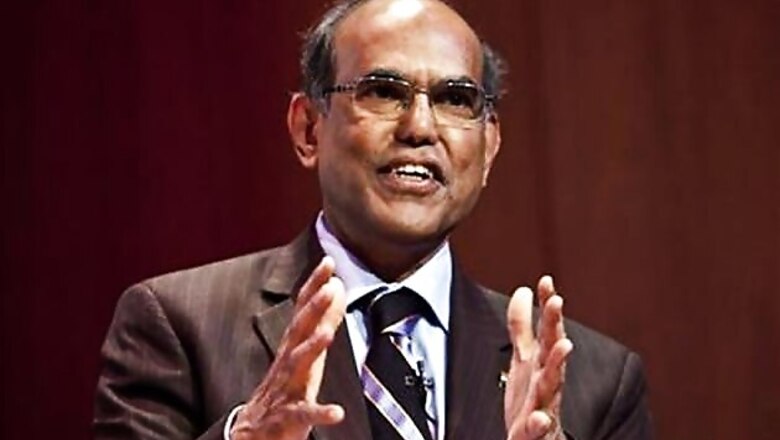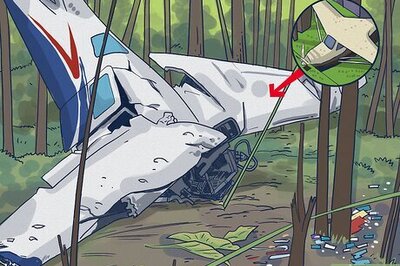
views
Moscow: The Reserve Bank on Monday said there is a limited scope for easing of monetary policy over the next few months as there is a risk of inflation escalation as well as concerns over fiscal and current account deficits. "There is room for monetary easing over the next few months, but that room is limited because of the outlook for inflation and outlook for growth," RBI Governor D Subbarao told CNBC TV18 here.
He is in Russia to attend the meeting of G-20 Finance Ministers and heads of central bank governors.
The Governor said the RBI would also take into account the fiscal consolidation measures and deficit projections by the Finance Minister in the upcoming Budget to decide on the monetary policy action.
"Important variable for monetary policy calibration is the fiscal adjustment that the government will do. The government will come up with deficit status in the Budget. We will look at the headline fiscal deficit number but also look at the quality of the fiscal adjustment," Subbarao said.
The Finance Minister will present the 2013-14 Budget in the Lok Sabha on February 28. The government aims to restrict fiscal deficit in the current financial year at 5.3 per cent of GDP and bring it down to 4.8 per cent in 2013-14.
Although the WPI-based inflation in January has come down to 6.62 per cent, lower than RBI's March end projection of 6.8 per cent, Subbarao said the high Current Account Deficit (CAD) could escalate inflationary pressures.
"Our monetary policy stance is going to be determined by a number of factors, including how inflation will unfold. There are number of risk factors for inflation. The most important is the current account deficit... We will need to take that into account for our monetary policy calibration," he said.
Subbarao said the CAD in the current fiscal is expected to be at the highest level. CAD, which is the difference between inflow and outflow of foreign currency, was 4.2 per cent in 2011-12 fiscal. It touched a record high of 5.4 per cent in July- September quarter of current fiscal.
"There is pressure on the government to consolidate fiscally. There is pressure on the central bank to bring about an environment of price stability, and for the government to understand that we need fiscal consolidation, price stability for long-term growth," Subbarao said.
As per RBI's estimate, the economic growth in the current fiscal would be 5.8 per cent, while the Central Statistical Organisation has estimated it at 5 per cent.
















Comments
0 comment